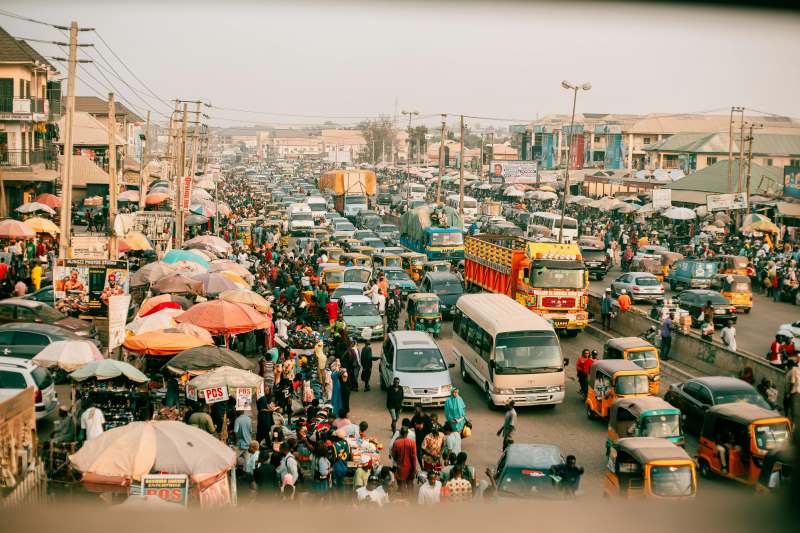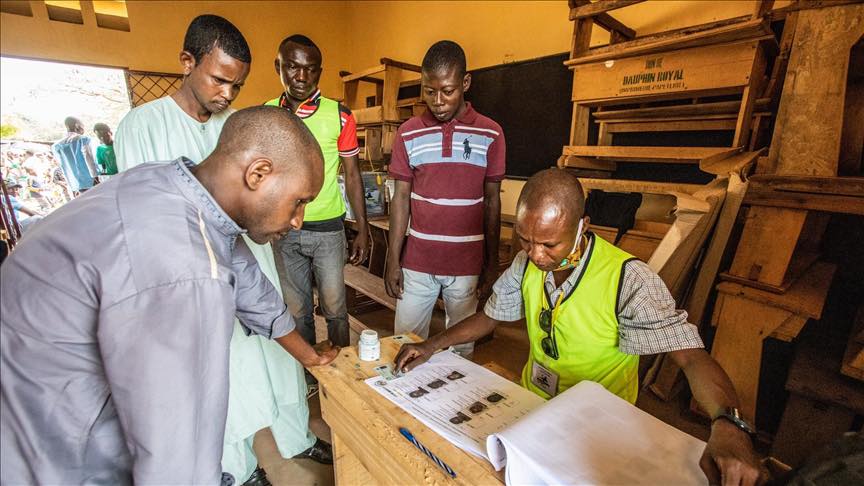Photo by Nicholas Githiri from Pexels
More than a third of migration in sub-Saharan Africa happens within the continent. This mixing of people means that some children have parents of different national origins. Yet not enough is known about the lives of these children: how they form their identity and what impact migration has on them.
The majority of research on second-generation African immigrants focuses on understanding their experiences in the global north.
Our research looked at the less studied African context, where the majority of African migration occurs.
We are sociologists who study migration and identity and we have seen that studies tend to take the perspective of the parents in the African context. The voices of the children are missing.
To fill this gap we asked children who have two African-born parents – but from different countries on the continent – about their experiences.
We aimed to understand how children with binational parentage formed their identity. We wanted to know if they aligned with either or both of their parents’ identities and which individual or structural factors shaped that. This could be useful to know in contexts where ethnic, religious, political, and national identities are salient markers of difference and influence people’s lives and opportunities.
We conducted 54 interviews but drew on the experiences of 32 of the research participants for our paper. Their ages ranged from the lower 20s to the lower 60s. Participants came from Ghana, Botswana, Kenya, Nigeria, Ethiopia and South Africa. Our sample was middle class and therefore our findings are limited to binational identity among middle class Africans.
A key criterion for participation was that participants should have lived in the African country of one of their parent’s birth or both during their formative years. This is because formative years (from birth up to the end of secondary education) shape who you are. And the experiences you have in a place leave an indelible impression and influence your sense of who you are.
We asked them questions such as: Who are you? What is your identity? Where are you from? How do others perceive you? What relationship do you have with your parents’ home country or hometown? To what extent has your identity created opportunities for you and to what extent has it created challenges for you?
A person’s primary identity is how they see themselves principally. Their secondary identity comes after those core or foundational aspects.
We learned that the participants’ primary identity was shaped predominantly by the closeness of family ties during their formative years. Family ties were evident in communication, visits, and presence at rites of passage.

Photo by Muhammad-taha Ibrahim
The case of three sisters whose mother was from Botswana and whose father was from Ghana highlighted the importance of the closeness of family ties for identity formation even among siblings.
Maru, the eldest, was born when her parents were settling into adult life. She was raised by her maternal grandmother in rural Botswana because her parents were trying to find jobs in Gaborone, the capital. She felt a close bond with her maternal grandmother and thought of herself as Kalanga (an ethnic group) with a very weak link to Ghana.
Her two sisters were born almost a decade later in Gaborone and raised by their parents, who had settled into their lives in the capital. They described themselves differently. Seliwe described herself as Ghanaian. When she was growing up, the family spent holidays (sometimes several months) in Ghana and she thoroughly enjoyed those visits. She was close to the Ghanaian side of her family and spent much time during our interview talking about her paternal uncle, who lived in her father’s hometown, and the jollof rice at a popular fast-food restaurant in Accra. She identified chiefly as Ghanaian and insisted that identity be recognized, for example by ensuring that her name, which is Ghanaian, be pronounced correctly.
The family plays a crucial role in identity formation. If parents want their children to identify with both sides of the family, they need to ensure that the children spend time with both sides of the family.
Another influence is the extent to which children are accepted by their extended family members. Meghan, who had a Ghanaian father and a Nigerian mother, noted that her mother’s family embraced her far more than the Ghanaian side of the family. Although she was living in Ghana, she barely had any contact with them. She explained, “I find that I relate more to my Nigerian side than the Ghanaian side.”
Fluency in a particular African language was not an important marker of identity for the study participants.
Our study also found that binational individuals drew upon their secondary identity either explicitly to achieve some purpose or implicitly for its intrinsic value.
About half of the sample had drawn on their secondary identity to access something practical, like tertiary education or employment. In simple terms, even if they didn’t feel strongly Nigerian (for example) they might use that identity to get a place at a university.
The other half of the sample drew on their secondary identity for non-essential – more cultural – purposes. Usually, this was in making choices about things like food, clothing, and music. Another purpose was more personal – such as the name the individual chose to use.
Identities are fluid and people weave in and out of them. If you feel Nigerian at your core then you embrace all aspects of “Nigerianness”, including music, food, and so on. If being Nigerian is your secondary identity, you see value in claiming it sometimes even if it is for instrumental reasons.
We found individuals with binational identities were able to shift between their primary and secondary identities quite frequently, sometimes daily.
A society’s culture informs identity – but so do individuals.





